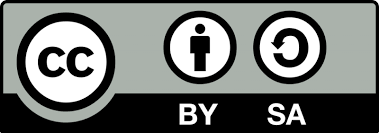The value of indicators for the teaching-learning process and educational inspection
DOI:
https://doi.org/10.23824/ase.v0i42.890Downloads
Abstract
This article explores the value of educational indicators in the teaching-learning process and their application in educational inspection. Indicators from the “2024 State System of Education Indicators” and “Education at a Glance 2024” are essential for evaluating academic performance, equity, and the quality of the education system. Through a documentary analysis based on reports and national and international databases, key indicators are examined that track educational progress and institutional quality. The findings show that indicators help identify problems in teaching, evaluate teacher performance, ensure regulatory compliance, and promote equity in access to education. Furthermore, educational inspection relies on these indicators to improve school management and ensure accountability. Challenges related to data collection and proper use are also mentioned, especially in socioeconomically diverse contexts.
References
Anderson, L. W. (Ed.). (2003). Classroom assessment: Enhancing the quality of teacher decision making. L. Erlbaum Associates.
Arias Gonzáles, J. L. (2021). Diseño y metodología de la investigación. Arequipia (Perú), Editorial Enfoques Consulting Eirl. Disponible en https://repositorio.concytec.gob.pe/handle/20.500.12390/2260
Bisquerra, R., & Dorio Alcaraz, I. (2019). Metodología de la investigación educativa (Sexta edición). La Muralla.
BOE. (2020a). Ley Orgánica 2/2006, de 3 de mayo, de Educación, modificada por la Ley Orgánica 3/2020, de 29 de diciembre. Versión consolidada recuperada el 9/12/24 de https://www.boe.es/buscar/act.php?id=BOE-A-2006-7899
BOE. (2020b). Ley Orgánica 3/2020, de 29 de diciembre, que modifica la Ley Orgánica 2/2006, de 3 de mayo, de Educación. Versión consolidada recuperada el 9/12/24 de https://www.boe.es/eli/es/lo/2020/12/29/3/con
Campos Barrionuevo, B. (2017). Inspección educativa y calidad institucional (1a ed). Universitas.
Domínguez Guerra, R. M. (2022). Los ejes principales de la inspección de educación al servicio de la mejora de los centros docentes. Supervisión 21, 53(53), 28. https://usie.es/supervision21/index.php/Sp21/article/view/400
Ehren, M. (2016). Chapter 4. School inspections and school improvement; the current evidence base. En Ehren, M.C.M (Ed). Methods and modalities of effective school inspections, Switzerland: Springer International Publishing, (pp. 69-85).
Ministerio de Educación, Formación Profesional y Deporte. (2024a). Las cifras de la educación en España. Estadísticas e indicadores. Edición 2024 (2024.a ed.). Secretaría General Técnica, Subdirección General de Atención al Ciudadano, Documentación y Publicaciones. Disponible en https://goo.su/xlCjS
Ministerio de Educación, Formación Profesional y Deporte. (2024b). Panorama de la educación. Indicadores de la OCDE 2024. Informe español. Secretaría General Técnica, Subdirección General de Atención al Ciudadano, Documentación y Publicaciones. Disponible en https://goo.su/dV2N
Ministerio de Educación, Formación Profesional y Deporte. (2024c). Sistema estatal de indicadores de la educación 2024. Secretaría General Técnica, Subdirección General de Atención al Ciudadano, Documentación y Publicaciones. Disponible en https://goo.su/mutVw
Murphy, J. & American Educational Research Association (Eds.). (1999). Handbook of research on educational administration: A project of the American Educational Research Association (2. ed). Jossey-Bass, a Wiley imprint.
National Academies of Sciences, Engineering, and Medicine (2019). Monitoring Educational Equity. Washington, DC: The National Academies Press. https://doi.org/10.17226/25389.
OECD. (2021). Education Policy Outlook 2021: Shaping Responsive and Resilient Education in a Changing World. OECD. https://doi.org/10.1787/75e40a16-en
OECD. (2022a). Education Policy Outlook 2022: Transforming Pathways for Lifelong Learners. París, OECD. https://doi.org/10.1787/c77c7a97-en
OECD. (2022b). Value for Money in School Education: Smart Investments, Quality Outcomes, Equal Opportunities. París, OECD. https://doi.org/10.1787/f6de8710-en
OECD. (2023). PISA 2022 Assessment and Analytical Framework. París, OECD Publishing. https://doi.org/10.1787/dfe0bf9c-en.
Pérez Jiménez, J. María., & García Ballesteros, P. E. (2022). La inspección de educación: Teoría crítica y práctica comprometida. Ministerio de Educación y Formación Profesional, Subdirección General de Atención al Ciudadano, Documentación y Publicaciones. Disponible en https://goo.su/QnREm
Perines, H. (2017). Movilización del conocimiento en educación. Conexión entre la investigación, la política y la práctica: Una aproximación teórica. Páginas de Educación, 10(1), 137-150. https://doi.org/10.22235/pe.v10i1.1362
Poggi, Margarita (coord.) et al. (2015). Mejorar los aprendizajes en la educación obligatoria. Buenos Aires, IIPE/UNESCO. Disponible en https://unesdoc.unesco.org/ark:/48223/pf0000234977
Silva García, B. P. (2013). El papel de la inspección escolar en la mejora de los resultados educativos. Educar, 49(1), 67. https://doi.org/10.5565/rev/educar.11
Tébar Cuesta, F. (2019). La Inspección de Educación mirando al futuro. Revista de Educación, 384. https://doi.org/10.4438/1988-592X-RE-2019-384-405
UNESCO. (2016). Education 2030: Incheon Declaration and Framework for Action for the implementation of Sustainable Development Goal 4: Ensure inclusive and equitable quality education and promote lifelong learning. UNESCO. https://unesdoc.unesco.org/ark:/48223/pf0000245656
Unión Europea. (2023). Monitor de la Educación y Formación 2023. Luxemburgo: Oficina de Publicaciones de la Unión Europea. https://doi.org/10.2766/337923 NC-AN-23-003-ES-Q
How to Cite
Issue
Section
Published
Keywords:
Educational evaluation, Indicators, Educational inspection, International studies, Teacher training, LOMLOELicense
Copyright (c) 2024 María Goretti Alonso de Castro

This work is licensed under a Creative Commons Attribution-ShareAlike 4.0 International License.

Attribution Share-Alike CC BY-SA
Those authors who have publications with this magazine, accept the following terms:
A) The authors will retain their copyrights, which will be simultaneously subject to the Creative Commons Attribution License that allows others to re-mix, modify and develop on your work even for commercial purposes, provided they credit you And to license their new works under the same terms.
B) The authors will retain the rights of exploitation of the intellectual property of this work, and especially the rights of reproduction, distribution, transformation in any of its modalities and public communication of said work, which will be simultaneously subject to the License Of recognition of Creative Commons that allows others to re-mix, modify and develop on your work even for commercial purposes, provided they credit you and license your new works under the same terms.
Creative Commons Attribution-ShareAlike 4.0 International Public License

